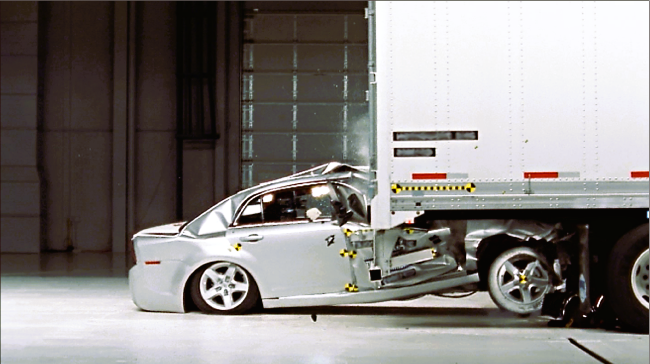
Rear Impact Guard Testing
ServicesIn the realm of vehicular safety, Rear Impact Guards stand as a crucial mandate outlined by Transport Canada and the U.S. D.O.T. These guards play a pivotal role in safeguarding the driving public in the event of a collision at the rear of trailers, heavy trucks, or other large vehicles. The requirements for these guards are explicitly articulated in the Federal and Canadian Motor Vehicle Safety Standards (FMVSS/CMVSS).
Meeting Stringent Standards
The litmus test for compliance lies in CMVSS 223: Test Method 223—Rear Impact Guard (December 2003), designed for showcasing adherence to the stipulations of Section 223 of Schedule IV to the Motor Vehicle Safety Regulations (MVSR).
Should you find your required Standards Test absent from the listing, WESTEST offers a wealth of experience in conducting a myriad of tests. Our adept team can configure and customize setups to align with a broad spectrum of standards. Reach out to us for tailored assistance.
Did you like the article? Read also about Protective Structure Testing.

The WESTEST Edge
A diverse clientele, ranging from large trailer manufacturers to agriculture equipment manufacturers and bus manufacturers, entrusts WESTEST with Rear Impact Guard Testing. What sets us apart is our unwavering commitment to deploying properly calibrated and maintained equipment, operated by trained engineers. Leveraging load cells, the MTS Flex Test Controller, and hydraulic actuators ensures the precision and accuracy of results. Our commitment extends to providing customized test setups to cater to your unique requirements.
Safety on the road is non-negotiable, and WESTEST stands as a reliable partner in ensuring the efficacy and compliance of Rear Impact Guards through rigorous and meticulous testing processes.
If you would like to read more about this topic and the standards, you can visit Canada.ca.
Recent Posts
- The Role of Data Analytics in Optimizing Production Testing Processes
- Measuring Success: Key Performance Indicators for Production Testing
- The Interplay Between Production Testing and Continuous Improvement
- The Importance of Training and Skill Development in Production Testing Teams
- Strategies for Minimizing Downtime During Production Testing

